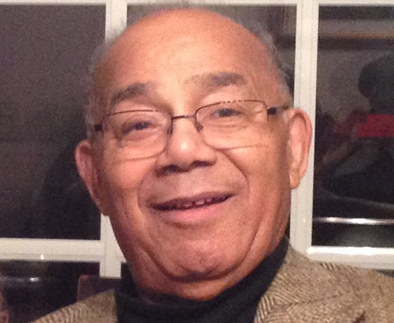
Bob Curvin enjoyed a good challenge, which was why he possessed such a love for Newark.
He cared deeply for his city—its neighborhoods, political power structure and progress as a postindustrial city—and dedicated his life as a civil rights leader towards the cause of social justice.
As a founding board member of New Community, Curvin crossed paths in the early 1960s with Monsignor William J. Linder, founder and current board chairman of NCC, and continued to be an enthusiastic supporter and friend of the agency. Curvin passed away on Sept. 29, 2015 at age 81.
“I had a lot of respect for him,” Monsignor said of Curvin. “He was incorruptible.”
Renowned as an activist, intellectual and civil rights leader, Curvin served the Congress of Racial Equality, known as CORE, as the Newark chapter head and national vice chair, and played a critical role in responding to causes and results of the summer disorders that erupted in Newark in 1967. The ensuing chaos caused much destruction in the Central Ward but also brought about the establishment of New Community, which was formally incorporated a year later.
“He was incorruptible.”
– Monsignor William J. Linder of Bob Curvin
“He really believed that Father Linder and the people around him had a vision for the city. It was a vision of supporting children, older people, housing, employment—a total village approach of finding ways to enable people to have their dreams,” Patricia Curvin, his wife, said.
Curvin demonstrated fearless leadership when it came to battling discrimination in key areas such as employment and police brutality, said Richard Cammarieri, a friend of Curvin and director of Special Projects at NCC.
Under Curvin’s leadership, CORE organized several dozen activists to occupy telephone booths and wield signs at Newark airport, protesting the racially discriminatory hiring practices of the New Jersey Bell Telephone Company, a subsidiary of AT&T, in the 1960s. The protest got Bell executives to pay attention.
“He was very attuned to the need to have dynamic leadership but within the framework of an organization that could move things forward,” Cammarieri said.
A self-described “elder of the Newark story,” Curvin was born in Newark, grew up as a child in Belleville and then attended college at Rutgers Newark. He resided in Newark ever since returning from the military in the 1950s, except for his time in graduate school at Princeton University.
Curvin previously served as the head of the Ford Foundation’s Urban Poverty Program from 1988 to 2000. He was also a member of the editorial board of The New York Times from 1978 to 1984, among his other accomplishments.
Despite having many accolades to his name, Curvin was easy to approach and eager to engage in a dialogue. Discussing his city, of course, was a source of endless conversation.
“He was not into small talk. He really liked to chew on an issue,” Curvin’s wife, Patricia, said.
In his book titled Inside Newark: Decline, Rebellion, and the Search for Transformation, Curvin documents a critical period of Newark’s history from the mid-twentieth century through the present with the focus on the socio-economic and political challenges people of color, especially African Americans, have faced over the years. It is a seminal and landmark work exploring, explaining and analyzing his beloved city, a book which will become a large part of his own legacy.
“The passion that went into writing this book stems from the inseparability of my life and attachment to Newark, not to mention the trauma of witnessing a historic rebellion,” Curvin wrote in the book’s introduction.
In addition to his wife, Patricia, Curvin is survived by his son, Dr. Frank Curvin; daughter, Nicole; and beloved grandchildren.


